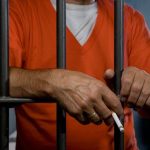Getting Prisoners to Quit- The New Smoking Ban in NSW Jails
In August 2015, the NSW Government implemented a smoking ban in all prisons. Despite valid health reasoning supporting the ban, the side effects associated with it included a rash of prison brawls, increased black market contraband, and controversy over prison guards’ smoking privileges. Further complicating matters is evidence that the ban may have no long-term effect on tobacco use.
The Health Considerations Behind the Ban
Despite decades of tobacco companies stating otherwise, most now understand that smoking tobacco is highly addictive and unhealthy. Cancer Council NSW provides some compelling statistics on smoking in prisons:
Prisoner smoking rates nearly five times higher than in the NSW community
Most prisoners who smoke express a desire to quit
Most individuals who try quitting while in prison say it is harder than quitting when outside of prison
Prison smoking bans reduce harmful secondhand smoke
Prison smoking bans correlate with reduced prisoner mortality
According to the Cancer Council NSW, “Tobacco smoking is the biggest risk factor for preventable cancer,” so taking steps to reduce smoking rates in NSW jails apparently makes sense.
Recent Prison Smoking Bans
NSW’s Corrective Services looked to other prisons’ successful implementation of smoking bans, noting that in Queensland, the Northern Territory and New Zealand, “…careful preparation made their jails smoke free with a minimum of disruption.” Cancer Council NSW notes that a smoking ban in New Zealand prisons “…reportedly saw a ‘smooth transition, from 67% of the prison population previously being smokers to a situation of a fully smoke-free environment.’”
Bringing on the Ban
Most bans are preceded by a 12-month plan to ease the transition for prisoners and staff. In NSW, preparations included a Corrections Services poster explaining the ban, aimed at visitors to the prisons. In answer to the “why?” question, it states, “It is a legislative requirement. It will also promote a healthy and safe environment for staff, inmates, and visitors.” For those living within the prison walls, the effects of the ban far exceed what appears on a few posters. CSNSW’s smoking ban states:
Smoking is not permitted anywhere on the grounds of a correctional centre and complex (including car parks, walkways, visits processing areas). Cigarettes, tobacco and smoking related items, such as matches, lighters and e-cigarettes, are banned.
One option generally offered as part of the lead-up to the ban is nicotine replacement therapy.
A Controversial Loophole
When it went into effect, bad feelings about the ban went beyond just prisoner complaints. One provision of the ban provoked many questions because it seems at odds with the reasoning supporting the ban. The ban is supposed to promote reduced smoking as well as reduced exposure to secondhand smoke. However, prison staff living on-site may smoke in designated areas when they are not on duty. As the AMA stated, this is “…a move likely to be resented by many prisoners who are being forced to quit.”
Smoking Ban Contributes to a “Thriving” Black Market
The prison black market has likely been around as long as there have been goals. Around the globe, prisoners gain access to a variety of commodities, from mobile phones to bacon to cigarettes. Thus, it was no great surprise when the Sydney Morning Herald published the following headline:
$300 for a pack of cigarettes: Smoking ban in NSW prisons creates thriving black market
What is surprising is the ingenuity of inmates in obtaining cigarettes or creating substitutes:
-Cut-up moistened nicotine patches blended with tea leaves rolled in pages from state-issued Bibles
-Using microwaves to light cigarettes
-Using TV cables with sticky tape at one end to fish cigarette butts from holes and crevices
Additionally, the price of “real” cigarettes and smoking paraphernalia has increased sharply. Matches and papers once sold for $3 now cost close to $90.
Do Smoking Bans in Prisons Work?
Quitting smoking results in better health for everyone. However, prison smoking bans cause turmoil that leads to other problems, such as increased black markets, more use of other drugs, and brawls. Furthermore, even if the ban on smoking prevents tobacco use whilst in prison, it may have little long-term effect. According to MJA Australia, research shows that over half of released inmates resume smoking on their first day of release.







